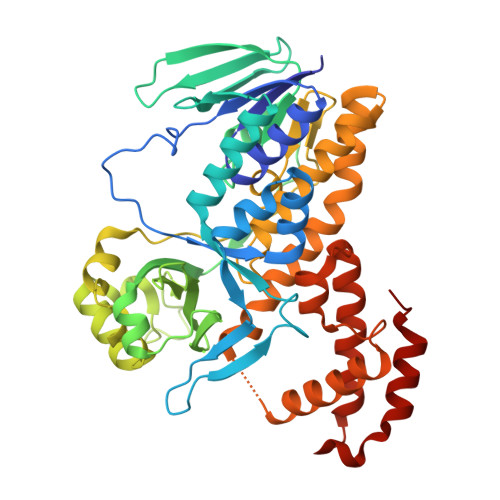Development of a Series of Kynurenine 3-Monooxygenase Inhibitors Leading to a Clinical Candidate for the Treatment of Acute Pancreatitis.
Walker, A.L., Ancellin, N., Beaufils, B., Bergeal, M., Binnie, M., Bouillot, A., Clapham, D., Denis, A., Haslam, C.P., Holmes, D.S., Hutchinson, J.P., Liddle, J., McBride, A., Mirguet, O., Mowat, C.G., Rowland, P., Tiberghien, N., Trottet, L., Uings, I., Webster, S.P., Zheng, X., Mole, D.J.(2017) J Med Chem 60: 3383-3404
- PubMed: 28398044
- DOI: https://doi.org/10.1021/acs.jmedchem.7b00055
- Primary Citation of Related Structures:
5MZC, 5MZI, 5MZK - PubMed Abstract:
Recently, we reported a novel role for KMO in the pathogenesis of acute pancreatitis (AP). A number of inhibitors of kynurenine 3-monooxygenase (KMO) have previously been described as potential treatments for neurodegenerative conditions and particularly for Huntington's disease. However, the inhibitors reported to date have insufficient aqueous solubility relative to their cellular potency to be compatible with the intravenous (iv) dosing route required in AP. We have identified and optimized a novel series of high affinity KMO inhibitors with favorable physicochemical properties. The leading example is exquisitely selective, has low clearance in two species, prevents lung and kidney damage in a rat model of acute pancreatitis, and is progressing into preclinical development.
Organizational Affiliation:
Discovery Partnerships with Academia, GlaxoSmithKline , Gunnels Wood Road, Stevenage SG1 2NY, UK.


















